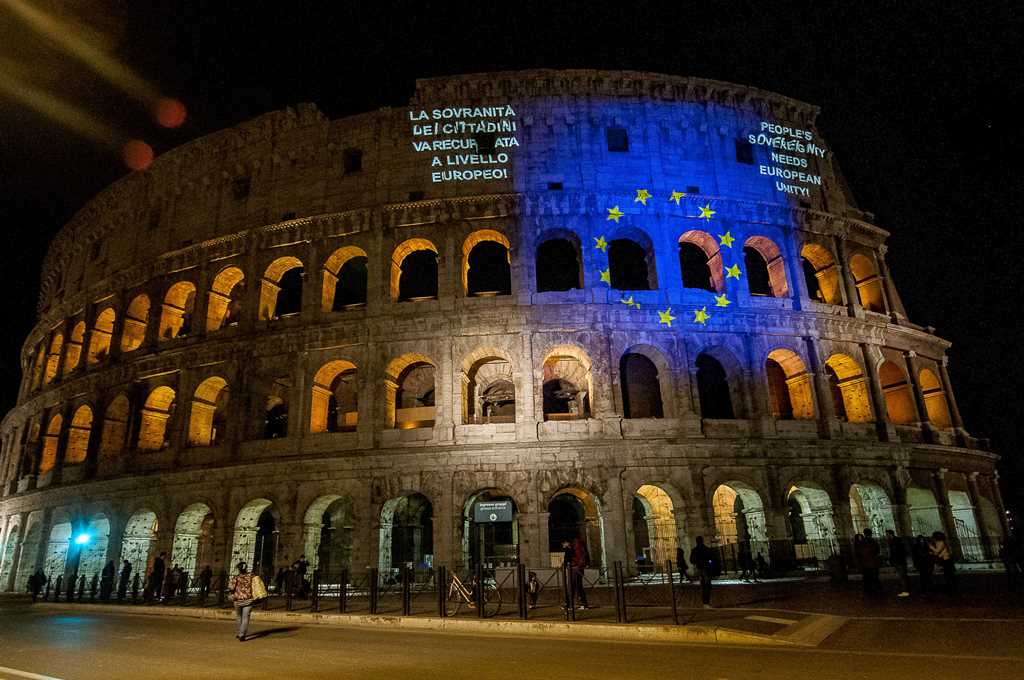Italy’s European Policy: Positioned Between the Five Star Movement and the League

Italy’s European Policy: Positioned between the Five Star Movement and the League
The establishment of the government of the Five Star Movement (M5S) and the League in May 2018 opened a new stage in Italy’s European policy. The policy is the result of the parties’ two different visions concerning relations with the EU. The government programme is based on M5S’s pro-European demands. However, the government is focused on defending the domestic policy created by the ruling coalition, which results in conflicts with the European Commission (EC), France and Germany. Simultaneously, M5S’s and the League’s programmes are divergent from Poland’s interests in some important aspects.
Until 2018, Italy’s European policy was based on close collaboration with France and Germany. They complied with EC recommendations on budget deficit reduction and tried to resolve the mass-migration problem at the EU level. Italy benefited from achieving broad politic and clerical representation in EU institutions and thus, from having an influence on its functioning. However, the ineffectiveness of the Italian economic and migration policies resulted in an increase in Euroscepticism, which affected the 2018 elections result. The new government of M5S and the League has withdrawn austerity policy and tightened migration policy without consultations with Italy’s European partners. These actions have led to a dispute within the EU and an increase in Italians’ distrust of the EU (55% in November 2018).
How the Parties Affect Italy’s European Agenda
M5S’s demands form the basis of the agenda. The government promotes further European integration, the democratisation of the EU, and an end to austerity policy. The government ’s programme supports the democratisation of the EU through delegating the legislative initiative to the European Parliament (EP) as well as reinforcing the Committee of the Regions. It argues EU economic management has to be changed by the completion of the Banking Union and implementation of instruments to mitigate the effects of financial crises, for example, adopting European unemployment insurance. Italy supports the EC’s proposal of new EU fund-granting criteria. It also insists on the amendment of the services directive to preclude low labour cost competition within the EU. Concerning migration policy, the government advocates for Dublin Regulation reform that would oblige the EU Member States to participate in the uniform distribution of asylum-seekers. It also wants the EU to collaborate with the U.S. and Russia in the area of security and argues that Russia and China should be important EU trade partners and that the Union should abolish sanctions against Russia.
The government’s European programme is different than the League’s agenda. The party supports the government’s postulates to strengthen the EP, change EU fund-granting criteria, Euroatlantic collaboration, and close relations with Russia. Nevertheless, the League’s programme is more Eurosceptic in other areas. It advocates for the liquidation of the eurozone, an end to EU common foreign policy and a lower Union budget. The party is also more radical in terms of migration policy. It demands the repeal of the Dublin Regulation and liquidation of the Schengen Area. Migration to Italy also should be reduced by tightening control of sea borders, not authorising vessels with undocumented migrants to dock in Italian ports, and reducing social benefits for migrants.
The Government’s European Policy in Practice
The government’s first step was the unilateral tightening of migration policy, which led to the conflicts with the EC, France, and Germany. The League’s leader, Matteo Salvini, took advantage of his dual roles as deputy prime minister and interior minister to try to implement his party’s agenda. He stopped accepting ships with migrants and refused landing permission for aeroplanes with asylum-seekers expelled from Germany who already had been registered in Italy according to the Dublin Regulation. Prime Minister Guiseppe Conte demanded the EC stop conveying to Italian harbours castaways rescued under the EU naval operation Sophia, tailored to fight migrant-smuggler networks. M5S’s leader, a deputy PM and economic development minister, Luigi Di Maio, threatened to suspend Italy’s payments to the EU budget if the EU Member States did not stop receiving migrants from ships arriving in Italy. He accused the Bank of France of abusive management of the African franc (the currency of 14 African states) to prevent these countries’ from pursuing expansive economic policy, arguing it has led to poverty and mass-migration. The EU summit on 28–29 June 2018, was an attempt to mitigate the controversy. However, it didn’t find any permanent solution to the migration problem. Italy forced a few countries to receive migrants from vessels it had refused entry to its harbours, but the government’s actions were an excuse for Germany to withdraw from Operation Sophia in February and for other countries to follow at the end of March 2019.
The government fulfilled M5S’s campaign promises about ending austerity policy by creating as October 2018 budget draft that had a deficit of 2.4% GDP instead of the 0.8% recommended by the EC. This led to conflicts in the EU arena, which ended with a compromise. The final deficit figure was 2.04% of GDP, which let the government introduce the reforms proposed by M5S.
The conflicts with the EC, France, and Germany led Italy to tighten relations with Russia and China. On 24 October 2018, Conte discussed with Russian President Vladimir Putin deepening economic cooperation. During the visit of Chinese leader Xi Jinping to Italy on 21–24 March, a memorandum on cooperation in the Belt and Road Initiative was signed. Italy de facto protected Chinese and Russian interests by precluding the EU from adopting a common statement on the crisis in Venezuela. Moreover, Di Maio and Salvini openly criticise the EU sanctions against Russia, arguing that they only weaken Italian exports.
Italy’s confrontational attitude is following the electoral cycle. Between now and May 2020, there will be elections to the EP and governments of 10 regions and half of the country’s municipalities. Both Salvini and Di Maio want to be the head of the European mainstream opposition inside the EP. They are rivals of French President Emmanuel Macron and make alliances with his critics. The League cooperates with Marine Le Pen’s National Rally and M5S wants to collaborate with the “yellow vest” movement.
Conclusions
The Italian government’s actions have given it temporal successes. The EC accepted a higher budget deficit and other EU countries received some migrants. However, the conflicts impede working out community solutions on migration policy and may reduce Italy’s impact on key EU staffing after the European elections.
The confrontational attitude of the government favours the League, which leads the polls and whose candidates win regional elections. M5S is losing voters but expects to recover them when their economic policy’s effects become more noticeable by the As a result of the prospect of electoral victories, the League could demand an increase in its impact on government policy. That would be a challenge to the stability of the government, though probably there won’t be any changes before May 2020.
The Italian government’s programme, though,
diverges from Poland’s interests in terms of EU-Russia relations, the
evaluation of the services directive, and EU fund-granting criteria. The
Italian statement on the crisis in Venezuela indicates that the country is
willing to use the unanimity rule to block EU
common foreign policy statements. The possibility that Italy would veto the EU
sanctions against Russia cannot be ruled out and may happen if the EC doesn’t
let the Italian government continue its expansive economic policy or
restrictive migration policy. The negotiations on the establishment of the
Italian budget for 2020, which will take place in
autumn, may result in such a situation. Increasing protectionism in services
could weaken the competitiveness of the Polish economy, which features low
taxes and low labour costs. The establishment of a rule on the number of
migrants to be admitted to a country and using the rate of unemployment as
criteria for the allocation of EU funds would reduce the financial benefits to
Poland from cohesion policy.


